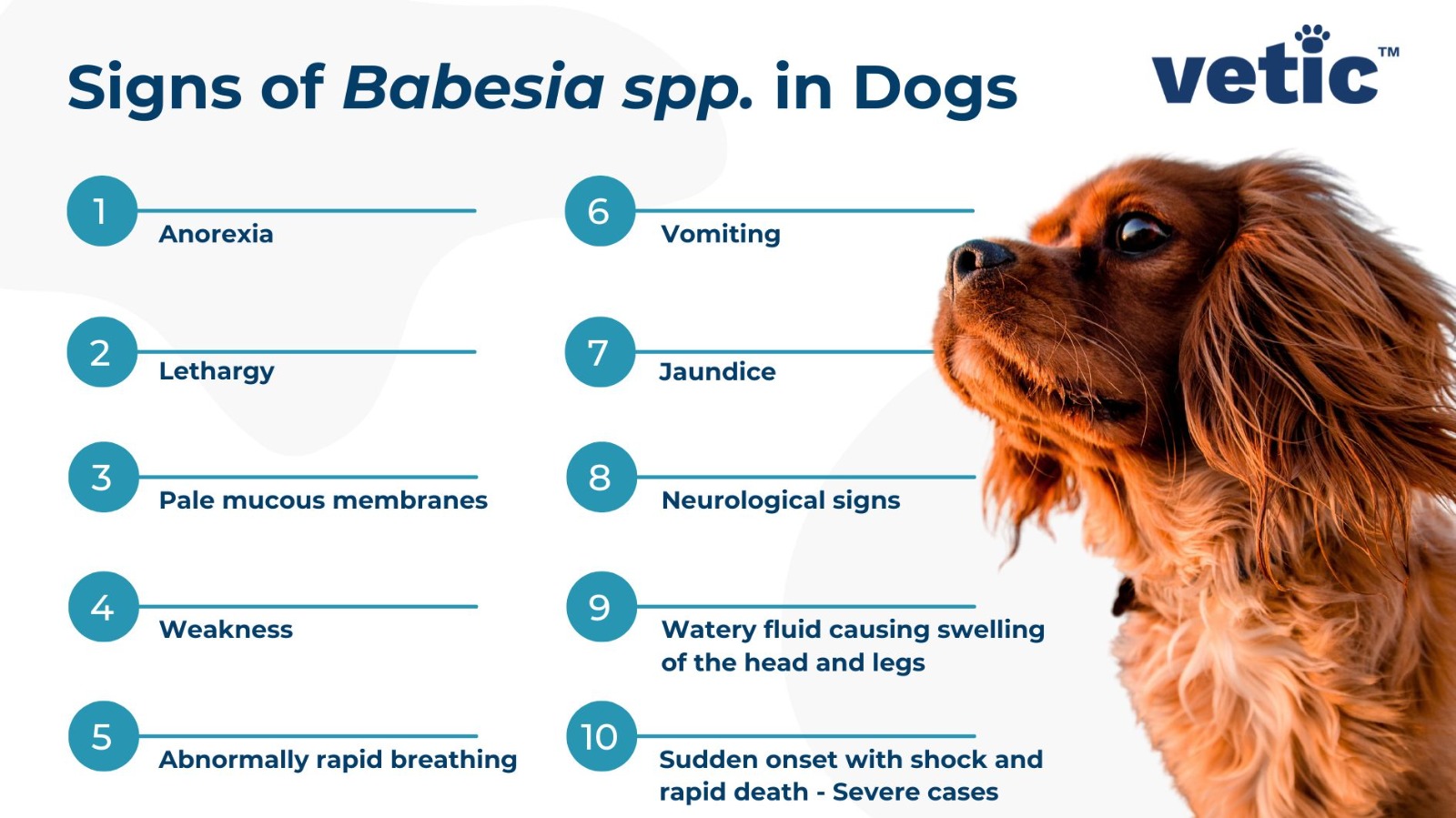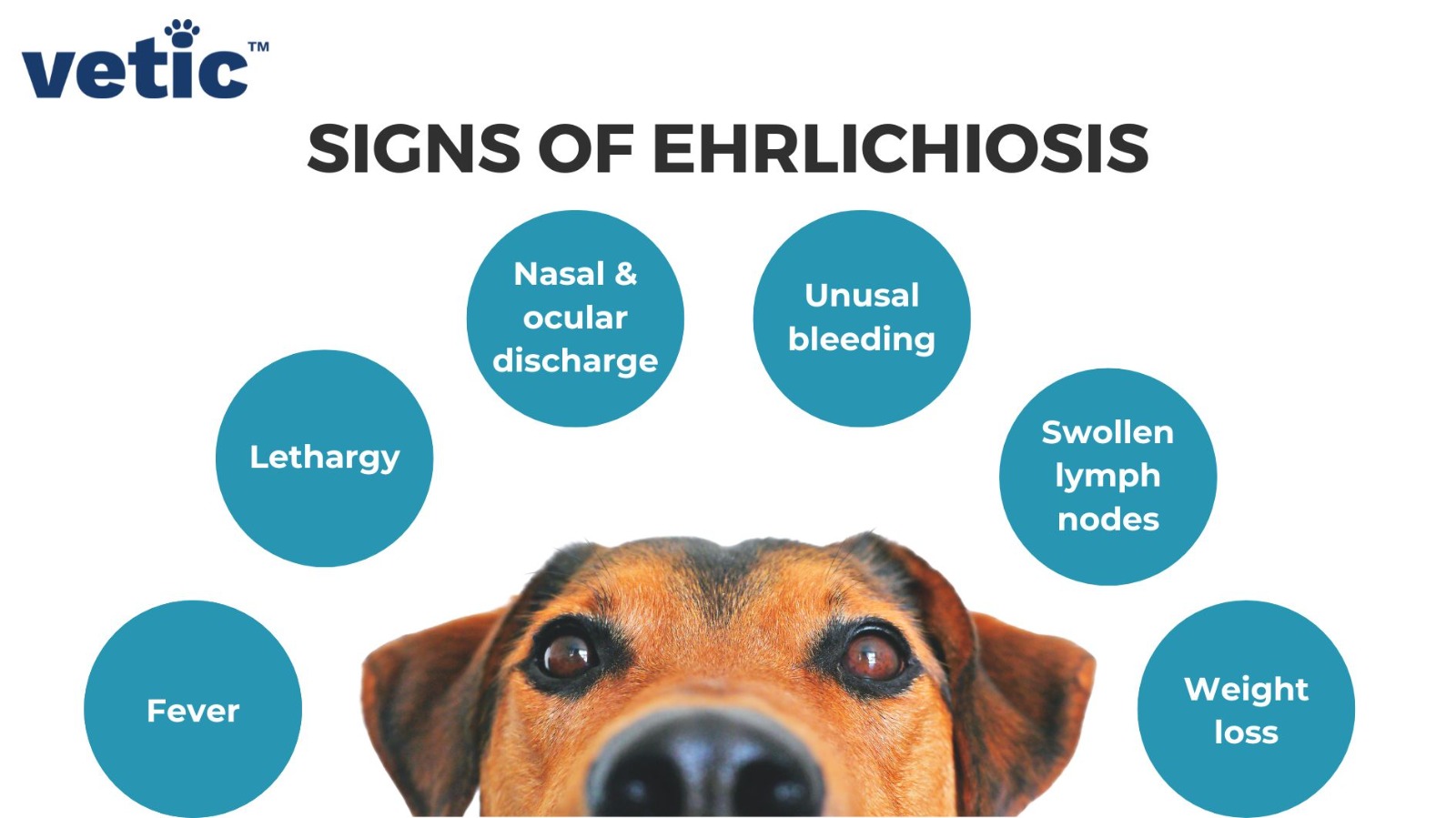Tick fever in dogs is a rising concern among pet parents and dog lovers across India. All of a sudden, there has been a spike in the number of babesia and Ehrlichia cases among dogs. Well, the truth is – they have been present for a while, but now we have the diagnostic tools to detect them in our canine friends.
As the name suggests, the main cause of tick fever in dogs is tick bites. Tick fever can be of various types which are caused by multiple pathogens – protozoa or bacteria. Sadly, one dog can be infected with more than one type of protozoa and/or bacteria.
In India, all breeds of dogs, gender and age are equally at risk of getting ticks and tick fever.
What are the tick-borne fevers most common in India?
India has a tropical climate which is perfect for the breeding of ticks. When these ticks bite a tick fever-infected animal and then bite a healthy dog, they transmit the pathogens that cause tick fever in the healthy dog.
The two most common tick-borne illnesses in India are babesiosis and ehrlichiosis.
What is Babesia in dogs?
Babesiosis in dogs is an infectious anaemia caused by the bite of a tick carrying Babesia. Babesia is a protozoal parasite that enters the red blood cells (RBCs) of the infected dog and breaks the RBCs down.
It is a hemoprotozoa in dogs that may more commonly infect dogs in kennels, day boardings and other multi-dog setups.
Babesiosis can be caused by multiple species of the same protozoa. The ones most common among dogs in India are –
- Babesia canis canis
- Babesia canis vogeli
- Babesia gibsoni
What are the Babesia symptoms in dogs?

The signs of babesiosis in dogs will vary depending upon your dog’s –
- Overall health condition and co-morbidities
- Age (more severe signs in puppies and senior dogs)
- The acuteness and severity of infection
Dogs infected with Babesia can show a wide range of signs that can range from sudden systemic shock to a slow progression with mild symptoms.
The common signs of Babesia in dogs include –
- Fever
- Lethargy
- Pale mucous membrane (anaemia)
- Loss of appetite
- Swelling of lymph nodes
- Enlarged spleen
- Dark urine
These symptoms are not enough to confirm babesiosis. Your veterinarian will recommend further blood tests and a real-time PCR (or qPCR) to determine the type of microorganism infecting your pup.
How did my dog get Babesia?
Current research suggests that babesiosis can be transmitted to a healthy dog in at least 3 different ways –
- The bite of an infected tick
- The bite of a dog with babesiosis (the biter might have an open lesion inside their mouth)
- From the mother (in utero) as a foetus.
As a dog parent, it is only natural to ask questions such as “Why did my dog get babesia,” “How did my dog get babesia” or “What will happen to my dog who has babesia.” But it’s important to remember that babesiosis can be treated and to focus on your dog’s healing.
How is Babesia in dogs diagnosed?
Physical examination gives significant clues about the nature of any infection in dogs. However, since babesiosis can cause different symptoms in different dogs and it be caused by more than one species of Babesia, your veterinarian will recommend a set of tests including –
- Complete blood count (CBC)
- Blood biochemistry
- Urine test
- Real-time PCR or qPCR
Other diagnostic tests are also used including fluorescent antibody (FA) staining, ELISA (enzyme-linked immunosorbent assay) and PCR.
What are the available Babesia treatments in India?
The treatment of babesiosis in dogs depends upon the infecting species of Babesia.
The course of treatment also depends on the liver and kidney health of the said dog.
Most dogs require supportive treatments that include – IV fluids, blood transfusions and liver/kidney support medication.
Can Babesia in dogs be cured?
Babesia might be a form of infectious hemolytic anaemia but it affects multiple organ systems in dogs. Therefore, all blood tests must be done and repeated periodically before and during the treatment of babesia.
A dog infected with Babesia will test positive for the antibodies against the particular Babesia species for a while (years). So, antigen-antibody testing for babesiosis is not the best way to determine the health of a dog previously diagnosed with the disease.
At the same time, dogs once infected with Babesia spp. always remain subclinically infected. The dog might experience a relapse of the disease and will always remain a source of Babesia spp.
You need to run blood tests regularly and visit the doctor for regular checkups. At the same time, remember that the infected dog cannot donate blood for transfusions since the recipient(s) may also develop babesiosis.
What is Ehrlichia in dogs?
Ehrlichia in dogs is caused by the bacteria Ehrlichia canis or E. canis which is transmitted by the bite of an infected tick. It is extremely common in India and other tropical countries.
Although German Shepherds and Doberman breed dogs are mostly susceptible to the effects of ehrlichiosis, all breeds of dogs are equally vulnerable to the bites of brown ticks and the transmission of the bacteria.
The brown dog tick, which is the main carrier of E. canis, is very common in India. As a result, Ehrlichia in dogs is quite common among streetie babies as well as pet dogs who frequent dog parks, pools and dog creches.
Tick fever is frequently detected in all breeds, ages and genders of dogs in India.
What are the symptoms of E. canis in dogs?

The signs of E. canis infection in dogs can vary depending upon the –
- Age of the dog
- Health condition of the dog
- Other comorbidities (pancreatitis, liver disease & kidney disease)
- The stage of Ehrlichiosis (acute, subclinical and clinical/chronic)
Some of the common signs of acute or early stages of Ehrlichia in dogs include –
- Fever
- Lethargy
- Swollen lymph nodes
- Weight loss
- Bleeding and haemorrhaging
- Breathing problems
- Neurological symptoms
A common sign of the subclinical stage of Ehrlichia in dogs is –
- Prolonged bleeding from any fresh wound
Subclinical E. canis infection is when the dog has the microorganism in their system but shows no clinical signs at all.
A dog at a subclinical stage may eliminate the bacteria on their own or progress to the next clinical stage.
Signs of clinical stage of Ehrlichiosis in dogs include –
- Fever
- Lethargy
- Anaemia
- Uncontrolled bleeding and haemorrhaging
- Neurological problems
- Swollen limbs
- Eye problems (bleeding and haemorrhaging)
The last stage of the disease is often characterised by multiple organ failure (MOF) and the inability of the bone marrow to produce new RBCs.
How is Ehrlichia in dogs diagnosed?
The clinical signs of all types of haemoprotozoa in dogs are similar. So, a physical examination of your dog is never enough to determine whether your dog has babesia or Ehrlichia.
To confirm ehrlichiosis your veterinarian may recommend an ELISA or real time PCR (qPCR) test.
Along with these, they will also recommend complete blood count (CBC), blood biochemistry tests and urine tests.
What is the treatment of E. canis in India?
The treatment of E. canis in dogs depends upon the stage of infection, overall health and age of the dog.
Sometimes, it is as simple as a daily course of antibiotics for a couple of weeks.
However, at other times, if the sick dog has anaemia, uncontrolled bleeding, liver and kidney issues and excessive limb swelling, the veterinarian will recommend supportive treatment as well.
Some dogs who are extremely anaemic or experience bleeding problems may require a blood transfusion.
Can E. canis be cured?
If Ehrlichiosis is detected in the first two stages (acute and subclinical), the dog has a good chance of survival and recovery with proper treatment.
However, Ehrlichiosis has one of the highest risks of recurrences unless you take steps to prevent future tick bites.
After the cure, can a dog have hemoprotozoa again?
Hemoprotozoa in dogs is an umbrella term that can consist of Babesia, Ehrlichia and Anaplasma.
Dogs, once infected with babesia will always remain carriers of the disease. They may show clinical symptoms at any time during their life.
However, dogs infected with Ehrlichia can be completely cured. The repeat diagnosis of ehrlichiosis in the same dog is generally due to reinfection (another bite from an infected tick).
How can you prevent hemoprotozoa in dogs?
The most effective way to prevent hemoprotozoa in dogs is by keeping them and their environment free from ticks.
Use spot-on treatments, tick and flea collars, put booties on their paws when they go out for walks, clean them and spray them down with anti-tick sprays when they are back.
Clean under the furniture and furnishing. Spray the anti-tick solution in the corners of your house and clean your dog’s bedding regularly as well.
Take them for regular professional grooming for the timely detection of the signs of tick bites. Regular veterinary check-ups and blood tests are mandatory for the complete well-being of any dog irrespective of their breed.
Outside India, Babesiosis vaccines are available. However, those vaccines are not effective against the common Babesia species that cause babesiosis in dogs in India.
Speak to a veterinarian near you as soon as possible to learn about the effective methods for tick removal and the prevention of hemoprotozoa in dogs.
Here are some of the most frequently asked questions about tick fever in dogs:
What is tick fever in dogs?
Tick fever in dogs is an illness caused by tick bites, leading to infections from protozoa or bacteria like Babesia and Ehrlichia.
What are the common symptoms of tick fever in dogs?
Symptoms include fever, lethargy, pale gums, loss of appetite, swollen lymph nodes, enlarged spleen, and dark urine.
How is tick fever diagnosed in dogs?
Diagnosis involves blood tests (CBC, biochemistry), urine tests, and PCR tests to identify the specific pathogen causing the infection.
Can tick fever in dogs be cured?
Tick fever can often be treated with appropriate medication, but dogs may remain carriers of certain pathogens like Babesia.
How do dogs get tick fever?
Dogs get tick fever from bites of infected ticks, bites from infected dogs, or transmission from an infected mother.
What is the treatment for tick fever in dogs?
Treatment includes antibiotics, supportive care like IV fluids, blood transfusions, and medications for liver and kidney support.
What are the prevention methods for tick fever in dogs?
Prevent tick fever by using tick control products, regularly cleaning the dog’s environment, and frequent veterinary check-ups.
Is tick fever contagious to other dogs?
Yes, tick fever can be contagious to other dogs if they are bitten by an infected tick or an infected dog.
What should I do if my dog shows symptoms of tick fever?
If your dog shows symptoms, seek veterinary care immediately for proper diagnosis and treatment to prevent complications.
Can tick fever affect any breed of dog?
Yes, all breeds, ages, and genders of dogs are equally susceptible to tick bites and tick fever infections.
